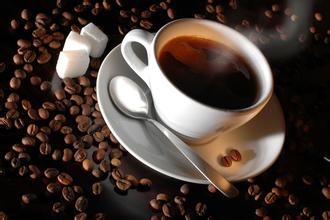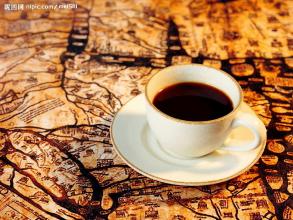How much does Blue Mountain Coffee cost? How much does it taste?
How much is the blue mountain coffee beans? how does a jin cup taste? how does it taste? is it grown in Yunnan?
However, there are also many problems in coffee cultivation in Vietnam, people's disorderly cultivation leads to serious environmental pollution, in addition, frequent natural disasters also affect the quality of coffee in Vietnam.
Different from the development model of Vietnam, Blue Mountain Coffee produces only 2400 tons of coffee a year, but the price tag is extremely expensive, making it the undisputed price king of the coffee industry.
The status of Blue Mountain Coffee is closely related to the policy of the Jamaican government. Compared with the lax guidance of the Vietnamese government, the control of the Jamaican government is almost to the point of harshness.
In 1948, the world-famous Jamaica Coffee Bureau (CIB) was officially established, and then the "Jamaica Blue Mountain Coffee Industry Management legislation" was promulgated, and the Coffee Bureau (CIB) made a strict and detailed classification of Blue Mountain Coffee and coffee beans, which opened the prelude to the Jamaican government's regulation and control of Blue Mountain Coffee from planting to final export.
At the source of cultivation, according to the regulations of the Jamaican Coffee Council, only coffee beans grown in Saint Andrew, Saint Thomas, Portland and Saint Mary and between 915m and 1680 m above sea level can be called Blue Mountain Coffee. This standard was immediately accepted by the United States and the European Union.
In the 1950s, the Jamaican government established the Yalas Town Land Bureau to help develop the eastern part of the island, which in turn took charge of coffee bean manufacturing and oversaw the production of Blue Mountain Coffee. The Jamaican government only authorizes five domestic manufacturers to process Blue Mountain coffee, strictly controls quotas, and publishes the names of these five manufacturers to the world, which is tantamount to telling the world that coffee grown in the Blue Mountains of Jamaica is protected by standards from the beginning of its manufacture.
In addition, any company that imports Blue Mountain Coffee or makes a product of the same name needs to obtain a certificate from the Jamaica Coffee Commission and submit 1% of its revenue as a royalty to Jamaica.

Important Notice :
前街咖啡 FrontStreet Coffee has moved to new addredd:
FrontStreet Coffee Address: 315,Donghua East Road,GuangZhou
Tel:020 38364473
- Prev

How does Mandarin Coffee Bean taste-- an introduction to the description of Manor Flavor
Mantenin Coffee Bean introduction Coffee rust has destroyed almost all coffee trees, people have to abandon Arabica, which has been in operation for many years, and Robusta coffee trees with strong disease resistance have been introduced from Africa. Indonesia today is a big coffee producer. Coffee is mainly produced in Java, Sumatra and Sulawi, with Robusta accounting for 90% of the total production. And Sue
- Next

Cuban Crystal Mountain Coffee Flavor Description Characteristics Quality Taste Manor Treatment Introduction
Crystal mountain coffee is very precious. There are two main reasons for this. The first reason is the economic sanctions imposed by the United States against Cuba, which do not allow Cuba to import goods. The second reason is that Cuban coffee beans are currently mostly bought by French and Japanese markets, especially Japan, so it is difficult to buy coffee beans directly from Cuba today. Still, Cuban coffee is popular among coffee lovers worldwide
Related
- Detailed explanation of Jadeite planting Land in Panamanian Jadeite Manor introduction to the grading system of Jadeite competitive bidding, Red bid, Green bid and Rose Summer
- Story of Coffee planting in Brenka region of Costa Rica Stonehenge Manor anaerobic heavy honey treatment of flavor mouth
- What's on the barrel of Blue Mountain Coffee beans?
- Can American coffee also pull flowers? How to use hot American style to pull out a good-looking pattern?
- Can you make a cold extract with coffee beans? What is the right proportion for cold-extracted coffee formula?
- Indonesian PWN Gold Mandrine Coffee Origin Features Flavor How to Chong? Mandolin coffee is American.
- A brief introduction to the flavor characteristics of Brazilian yellow bourbon coffee beans
- What is the effect of different water quality on the flavor of cold-extracted coffee? What kind of water is best for brewing coffee?
- Why do you think of Rose Summer whenever you mention Panamanian coffee?
- Introduction to the characteristics of authentic blue mountain coffee bean producing areas? What is the CIB Coffee Authority in Jamaica?

